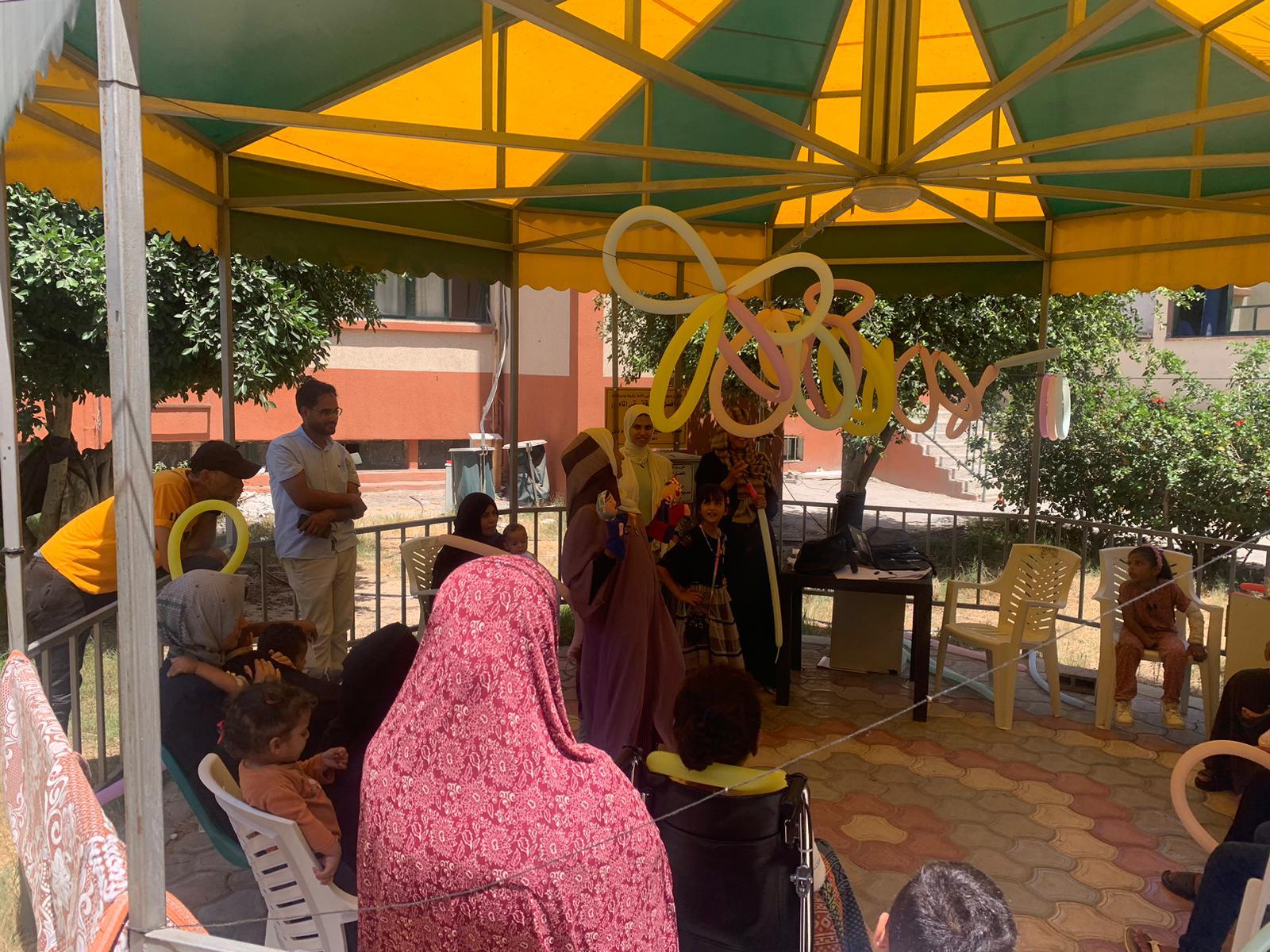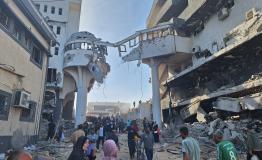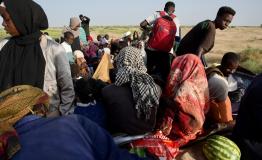As the unrelenting horror continues in Gaza, Palestine, our teams in Rafah and the Middle Area are seeing a spectrum of mental health issues among children and adults. Since the beginning of the year, Médecins Sans Frontières (MSF) has provided over 8,800 psychosocial support sessions for people in Gaza.
Davide Musardo, MSF psychologist, recently left Gaza where he helped Gazans address the various mental health symptoms they are facing, while living in horrific circumstances amidst the relentless bombing. Below he reflects on the haunting memories of people living through an unbearable reality.
“In some sessions we even had to shout to be heard, to overcome the sound of drones and bombs. And when there was no fighting outside, the background sound was the cries of children in the hospital. Children maimed, with burns or without parents. Children having panic attacks, because physical pain triggers psychological wounds when pain reminds you of the bomb that changed your life forever. Calmer children draw drones and military jets. War is everywhere in the hospital; the smell of blood is unbearable. This is the image I bring back from Gaza.
I’ve never experienced anything like what I saw in Gaza. There are some traits common to all the patients I saw there. Dark, almost burnt skin, because they are exposed to the sun all day. Weight loss because food is scarce. Their hair is white from the stress of these months of war. And they all have expressionless faces. A face that illustrates loss, sadness and depression. People who have lost everything.
‘I miss the little things. The pictures of my mother who died years ago, the cup I used to drink coffee with. I miss my routine more than my broken home,’ one patient told me.
‘I haven't had a glass of fresh water for months. What kind of life is this?’ another patient asked me.
As human beings, we are prone to recount the pain and suffering that we face. But how do you tell a story of grief to someone who is going through the same thing as you? That is why one of our priorities is to offer a safe listening space for our patients and for the Palestinian doctors and nurses who have been working non-stop for more than eight months.
Here in Italy, we delete blurry photos or useless shots from our phones. In Gaza, people delete photos of family members who died during the bombings, thinking that not seeing them any more will ease their suffering.
I have seen people break down when receiving news of another evacuation order. Some people have changed places as many as 12 times in eight months. ‘I won't move my tent anymore, I might as well die,’ I have heard people say.
In Gaza, one survives but the exposure to trauma is constant. Everything is missing, even the idea of a future. For people, the greatest anguish is not today – the bombs, the fighting and
the mourning – but the aftermath. There is little confidence about peace and reconstruction, while the children I saw in the hospital showed clear signs of regression.
Although I have left Gaza, it’s as if I am still there. I can still hear the screams of the burnt children. We need an immediate and lasting ceasefire, without it, healing the profound psychological wounds will be impossible.”



